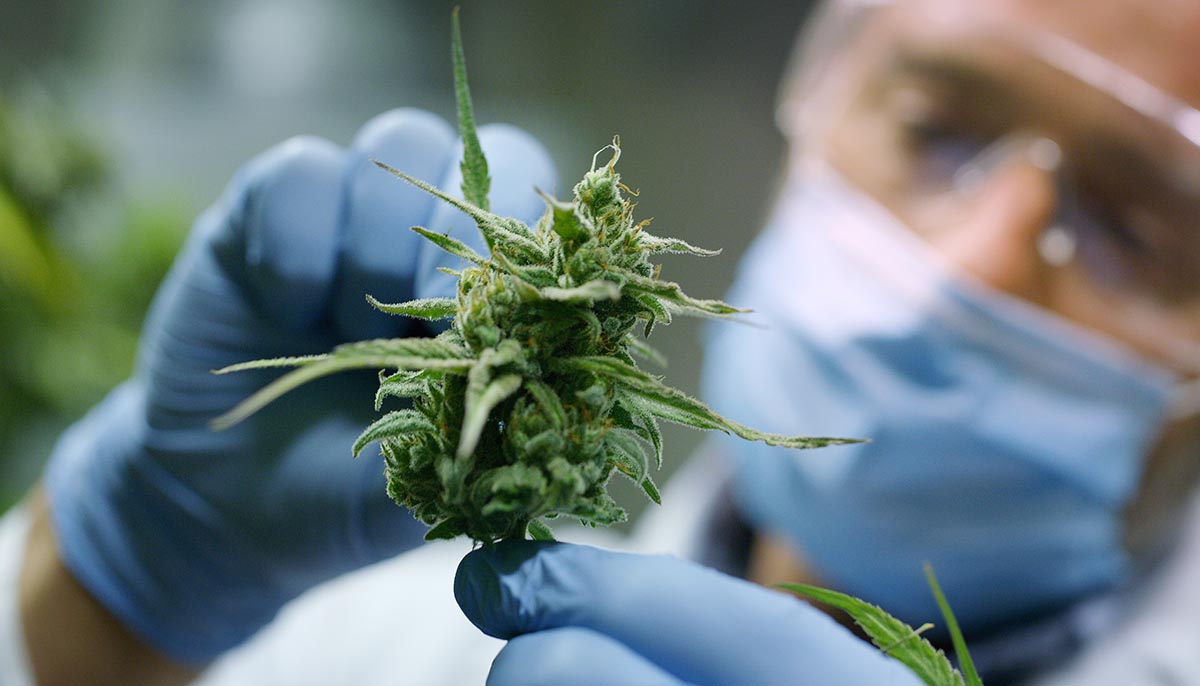Shutterstock
Scientists have discovered a new cannabis compound that has the potential to be 30 times more powerful than THC. They named the compound tetrahydrocannabiphoral, or THCP.
They also discovered a second new compound that they’ve named CBDP, which appears to be related to CBD, a medical compound known for its antioxidant and anti-inflammatory properties.

The scientists published the study in a recent report in the Nature, Scientific Reports journal.
The researchers identified the new cannabis compounds by means of metabolomics and mass spectrometry. These processes can locate the basic chemicals of a given molecule or sample.
The scientists assessed the THCP to see if it could bind to human cannabinoid receptors.
When a person smokes weed, THC overwhelms their endocannabinoid system. The compound interferes with the cannabinoid receptor’s ability to communicate between neurons.
Scientists found THCP binds strongly to those receptors; 33x more than THC. This finding led the scientists to wonder if that is why some varieties of cannabis have a stronger effect than others.
Related: Bernie Sanders Pledges to Immediately Legalize Weed in All 50 States if Elected
The lead author of the research, Dr. Cinzia Citti at the University of Modena and Reggio Emilia in Italy had this to say about it:
“This means that these compounds have higher affinity for the receptors in the human body. In cannabis varieties where THC is present in very low concentrations, then we can think that the presence of another, more active cannabinoid can explain those effects.”
The authors of the study believe THCP has the potential to be highly beneficial.
Dr. Jane Ishmael, an associate professor at Oregon State University’s College of Pharmacy said, “There are other minor cannabinoids and traces in the plant that can be hard to study, but by isolation, we can continue to assess the effects they might offer.
“Historically, many of our medicines have been derived by or inspired by natural products,” she continued. “By having new compounds that bind with very high affinity, that will give scientists a new probe into biological sciences.”